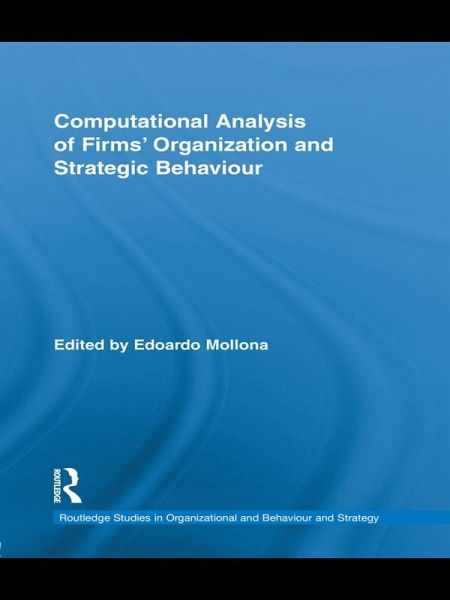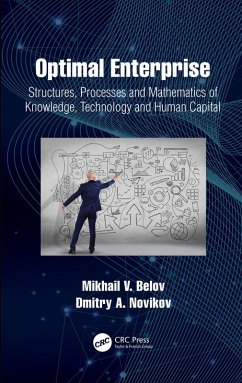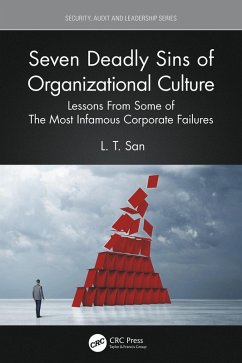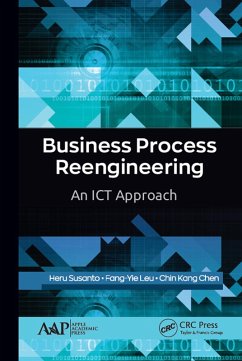
Computational Analysis of Firms' Organization and Strategic Behaviour (eBook, ePUB)
Versandkostenfrei!
Sofort per Download lieferbar
54,95 €
inkl. MwSt.
Weitere Ausgaben:

PAYBACK Punkte
27 °P sammeln!
This book addresses possible applications of computer simulation to theory building in management and organizational theory. The key hypothesis is that modelling and computer simulation provide an environment to develop, test and articulate theoretical propositions. In general, computer simulation provides an experimental environment where researchers are able to play with symbolic representations of phenomena by modifying the model's structure and activating or deactivating model's parameters. This environment allows to both generating hypotheses to ex post explain observed phenomena or to ex...
This book addresses possible applications of computer simulation to theory building in management and organizational theory. The key hypothesis is that modelling and computer simulation provide an environment to develop, test and articulate theoretical propositions. In general, computer simulation provides an experimental environment where researchers are able to play with symbolic representations of phenomena by modifying the model's structure and activating or deactivating model's parameters. This environment allows to both generating hypotheses to ex post explain observed phenomena or to ex ante generate distributions of unrealized events thereby envisioning areas for further empirical investigations.
Under a methodological perspective, the volume investigates logics and techniques to design a research strategy grounded on computer simulation. In particular, the articles in the book concentrate on two different techniques, and philosophies, to set up a simulation study: System Dynamics, which is grounded on differential equations and feedback theory, and agent-based modeling. The book describes how computer simulation helps to look into research issues typical to strategic management and organizational theory. In this respect, such themes as firms' diversification strategies, competitive strategy, rivalry and the impact of role dynamics on organizational performances are explored through the lenses of computer simulation models.
Under a methodological perspective, the volume investigates logics and techniques to design a research strategy grounded on computer simulation. In particular, the articles in the book concentrate on two different techniques, and philosophies, to set up a simulation study: System Dynamics, which is grounded on differential equations and feedback theory, and agent-based modeling. The book describes how computer simulation helps to look into research issues typical to strategic management and organizational theory. In this respect, such themes as firms' diversification strategies, competitive strategy, rivalry and the impact of role dynamics on organizational performances are explored through the lenses of computer simulation models.
Dieser Download kann aus rechtlichen Gründen nur mit Rechnungsadresse in A, B, BG, CY, CZ, D, DK, EW, E, FIN, F, GR, HR, H, IRL, I, LT, L, LR, M, NL, PL, P, R, S, SLO, SK ausgeliefert werden.













